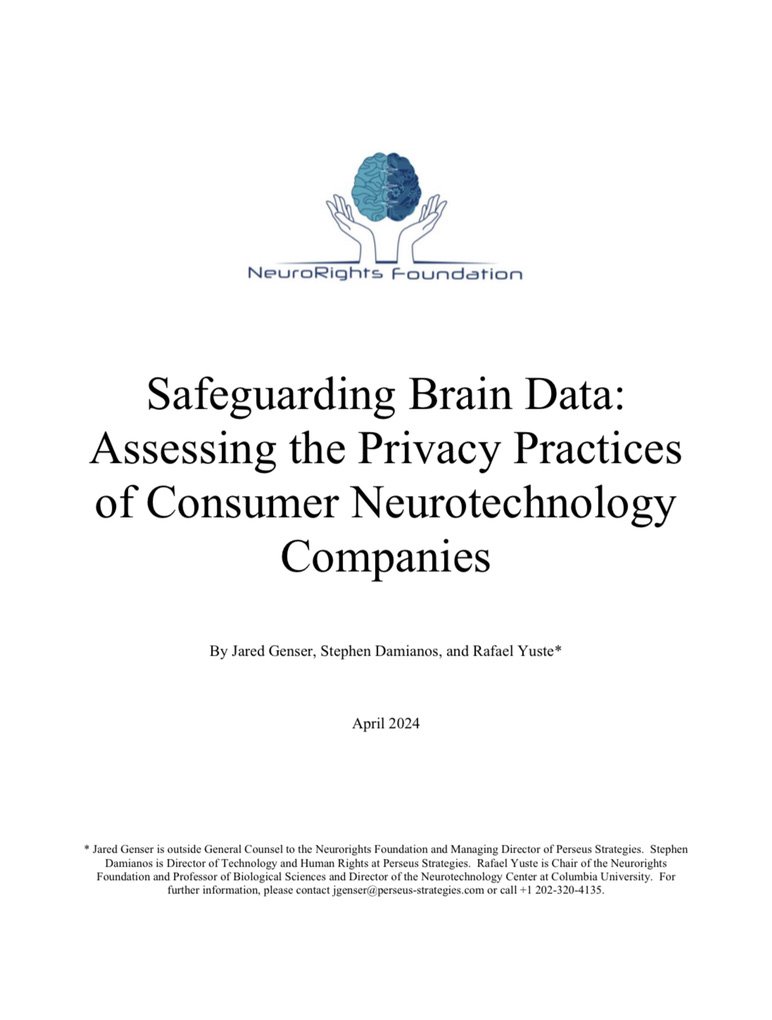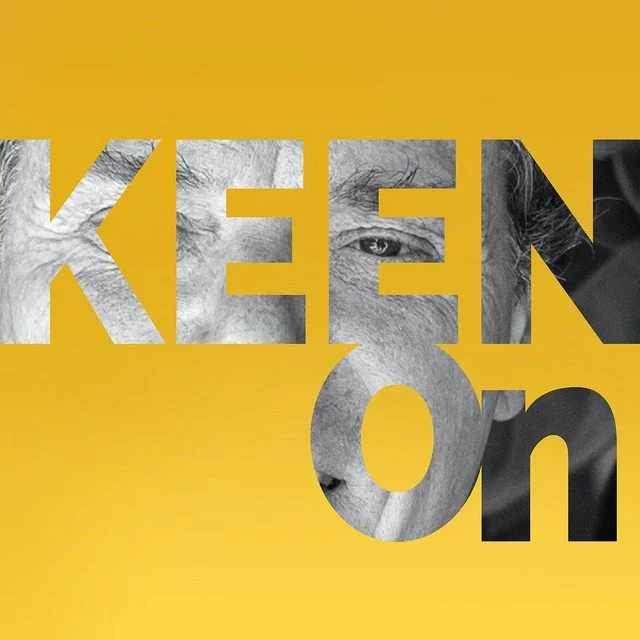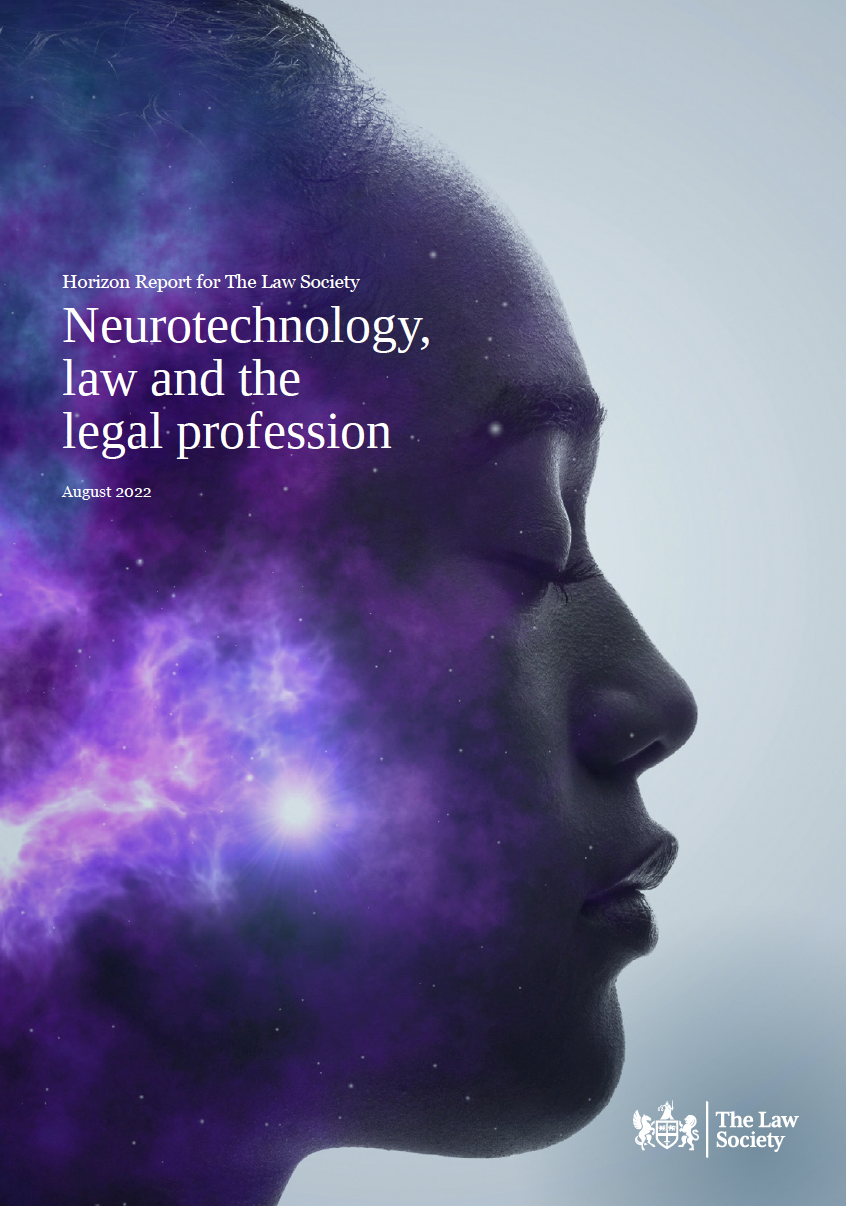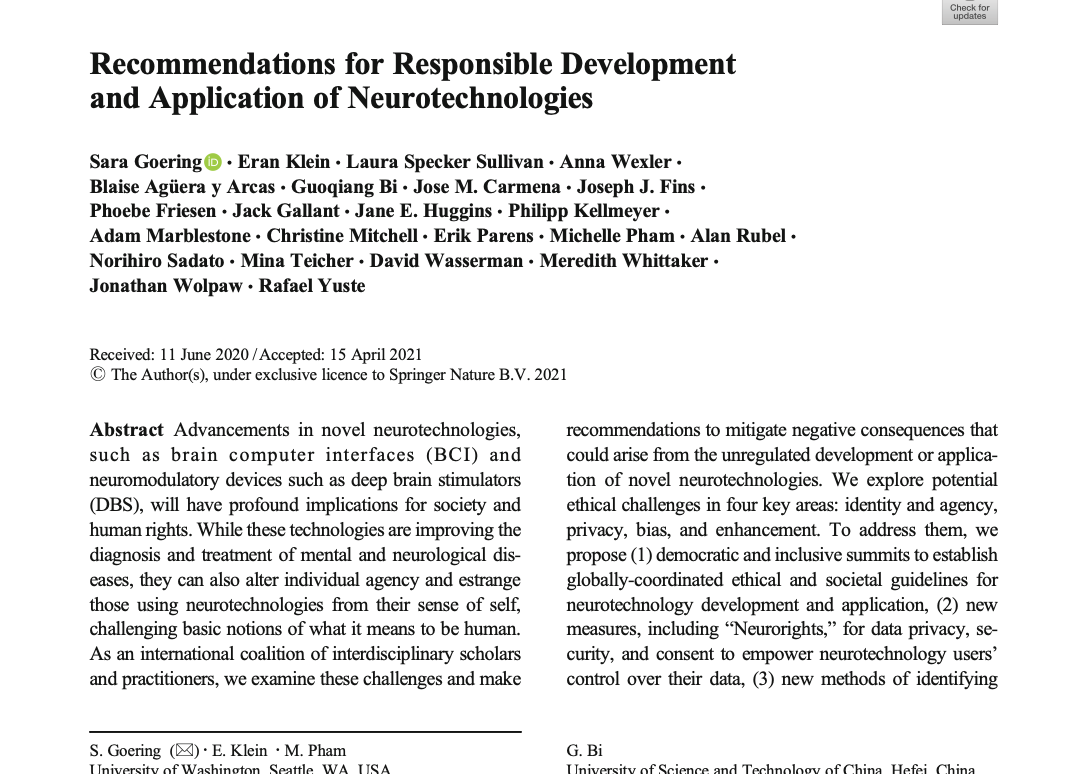
The Neurorights Foundation
New Human Rights for the Age of Neurotechnology
Promoting innovation, protecting human rights, and ensuring the ethical development of neurotechnology.
Introducing: Privacy Policy in the Neurotechnology Industry
The 100-page report is the first ever report analyzing the data practices and user rights of consumer neurotechnology products. Neurotechnology refers to devices capable of recording or altering the activity of the nervous system, including the brain, spinal cord, and the peripheral nerves. Traditionally used within medical and research settings, neurotechnology devices are increasingly marketed to consumers. The report presents an initial assessment of privacy practices in the consumer neurotechnology space, analyzing the privacy policies and user agreements of 30 neurotechnology companies with products that can be purchased online. It benchmarks data practices against half a dozen global data protection standards to compare the handling of neural data with established global standards for handling other types of sensitive and personally identifiable data.
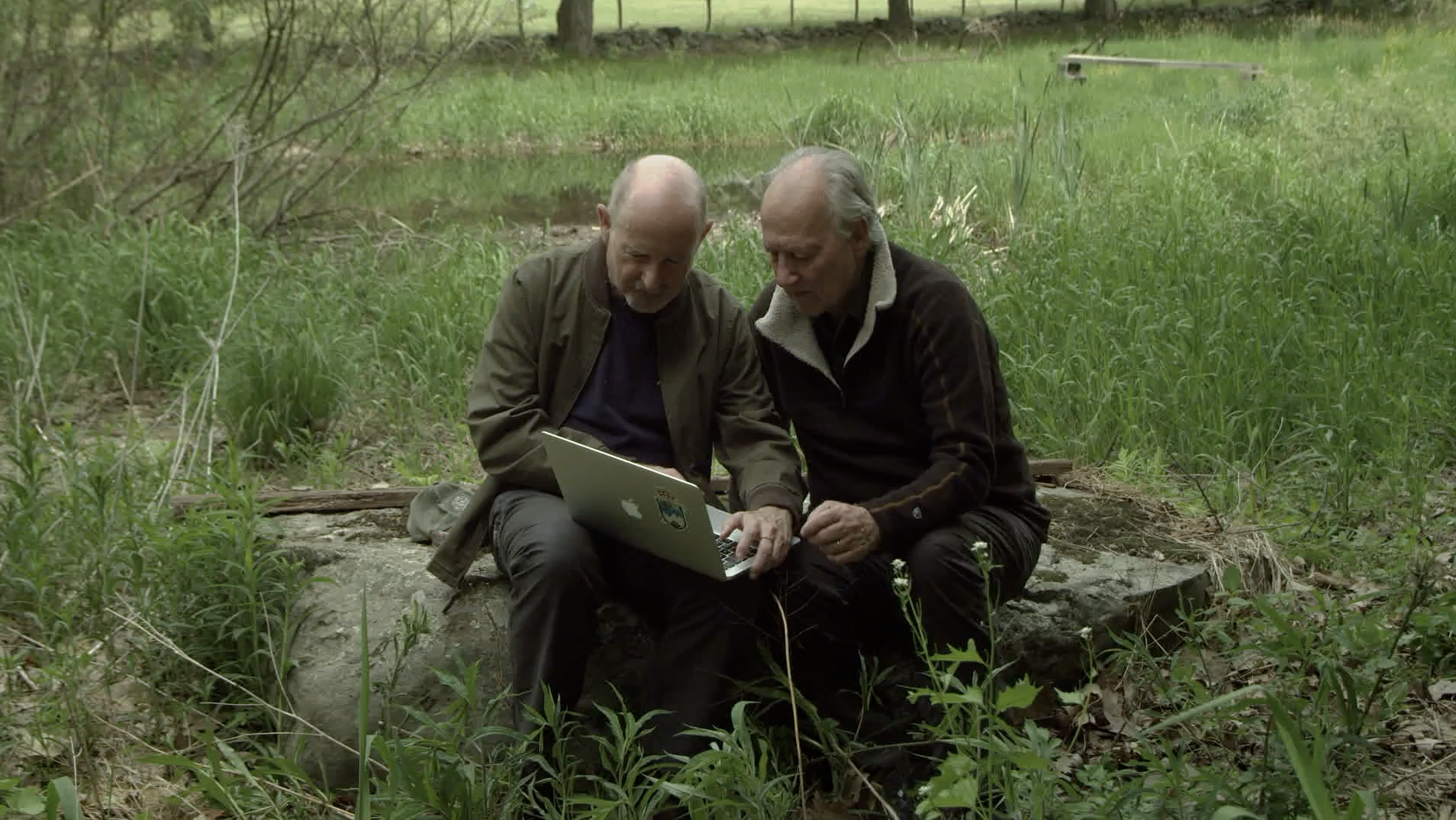
Our documentary film, an NRF collaboration with the legendary Werner Herzog:
Theater of Thought
We offer free screenings of our documentary film, Theater of Thought to the following organizational types:
1. Scientific/Research groups
2. Medical Campuses, Societies, and organizations
3. Academic/Educational groups, organizations, and institutions
4. Policy organizations, NGOs, government agencies, and governing bodies.
Any inquiries or questions regarding screenings should be directed to neurorightsfoundation@gmail.com
The Challenge: Advances in Neurotechnology Have Far Outpaced Global, National, and Corporate Governance
Any technology that records or interferes with brain activity is defined as Neurotechnology. Neurotechnology, especially brain-computer interfaces, has the potential to foundationally alter society. In the coming years, it will be possible to decode thought from neural activity or enhance cognitive ability by linking the brain directly to digital networks. Such innovations could challenge the very notion of what it means to be human.
The Neurorights Foundation works on this issue at four levels:
-
Neurotechnology raises fundamental human rights challenges that were never envisioned by today’s international human rights treaties. Instead, today’s era calls for a novel protection framework: NeuroRights
-
Governments need to develop and adopt a new legal and regulatory framework to govern the development and use of neurotechnology that will provide protection against the misuse of neurotechnology.
-
It is essential to develop a new ethical code in collaboration with companies, entrepreneurs, scientists, and investors that can set the standard for self-governance and accountability.
-
It is important that wide efforts be undertaken to highlight the exciting current and forthcoming developments in neurotechnology and explain how such technology might be misused or abused.

Our Mission: A human rights framework to inform Neurotechnology policy
NeuroRights Protection
Our goal is to protect the human rights of all people from the potential misuse or abuse of neurotechnology.
We are working to incorporate five Neuro-rights that have been identified as critical into international human rights law, national legal and regulatory frameworks, and ethical guidelines.
Recent Publications
-

Advocating for Neurodata Privacy and Neurotechnology Regulation
Nature Protocols Publication - Neurotechnology has the potential to revolutionize science and medicine, but it also raises serious ethical concerns, such as the misuse of neurodata. To protect personal neuroprivacy and ensure the responsible development of this field, we advocate for ethical and human rights guidelines, technical safeguards, and regulatory reforms.
-

Prime Papers: Advancements in Neurotechnology
Compiled by our neuroscientists, this spreadsheet contains the most recent and significant research papers involving neurotechnology. Not a scientist? No need to worry! Questions addressed, methods utilized, and ultimate findings have been summarized for you.
-

Neuro-Rights and New Charts of Digital Rights: A Dialogue Beyond the Limits of the Law
In this article, the authors address some of the most pressing issues that stem from the relationship between the technological advancements of the twenty-first century and legal regulation. The development of neurotechnology and artificial intelligence (AI), while offering considerable opportunities for the betterment of social life, also poses unprecedented risks.

Press

